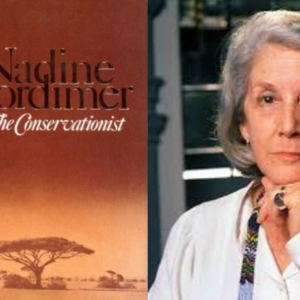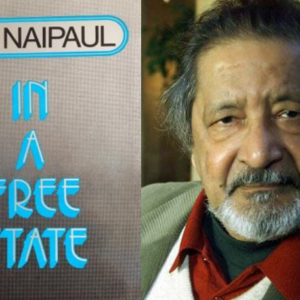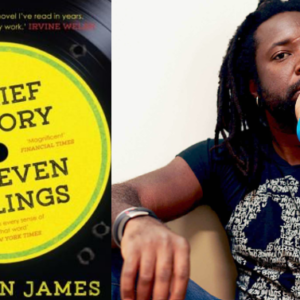Quick Navigation
ToggleSomething To Answer For
Title: Something to Answer For
Author: P.H. Newby
Genre: Literary Fiction
Publication Year: 1968
Awards: 1969 Booker Prize Winner
“Something to Answer For,” the first winner of the Booker Prize in 1969, is an intricate and subtly layered novel by P.H. Newby. Set against the backdrop of the 1956 Suez Crisis, the book explores themes of identity, colonialism, and moral ambiguity through the experiences of its protagonist, Townrow.
Plot Summary
The novel begins with the protagonist, Townrow, being summoned to Port Said, Egypt, by Mrs. Khoury, a widow whose deceased husband, Elie, had been a close friend of his. Townrow’s journey is ostensibly to assist Mrs. Khoury with some legal matters regarding her late husband’s estate. However, as he delves deeper into the situation, he finds himself entangled in a web of political tension and personal deception.
Upon his arrival in Egypt, Townrow, a somewhat aimless and morally ambiguous Englishman, becomes increasingly embroiled in the complex socio-political landscape. The novel captures the chaos and uncertainty of the period, marked by the invasion of the Suez Canal by British, French, and Israeli forces. Townrow’s personal journey mirrors the larger political turmoil, as he grapples with questions of loyalty, guilt, and responsibility.
Character Analysis
Townrow: The protagonist is portrayed as a flawed and unreliable character, whose motivations and actions are often ambiguous. Townrow’s moral compass is constantly tested, and his sense of identity is in flux. His interactions with other characters reveal his deep-seated insecurities and a persistent search for meaning.
Mrs. Khoury: She is a pivotal character who represents the complexities of colonial relationships. Her interactions with Townrow are marked by a blend of manipulation, desperation, and genuine need. Mrs. Khoury’s character serves as a catalyst for Townrow’s introspection and eventual transformation.
Elie Khoury: Though deceased, Elie’s presence looms large over the narrative. His relationship with Townrow is revealed through flashbacks, adding layers to the protagonist’s character and the story’s moral quandaries.
Themes
Colonialism and Identity: The novel delves deeply into the impact of colonialism on both the colonizers and the colonized. Townrow’s identity crisis reflects the larger issues of national and personal identity that were prevalent during the decolonization period. The Suez Crisis serves as a powerful backdrop, symbolizing the decline of British imperial power and the complex legacies of colonial rule.
Moral Ambiguity: Newby masterfully portrays the uncertainty and moral ambiguity of the period. Townrow’s journey is marked by a series of ethical dilemmas, forcing readers to question the nature of duty and justice. The novel does not provide clear answers, instead inviting readers to ponder the complexities of right and wrong in a world where the lines are often blurred.
Isolation and Belonging: Throughout the novel, Townrow struggles with feelings of isolation and a desire to belong. His interactions with the various characters in Port Said highlight his internal conflicts and his search for a place where he truly fits.
Writing Style and Structure
P.H. Newby’s prose is elegant and nuanced, capturing the mood and atmosphere of the time with precision. His descriptions of Port Said are vivid and evocative, bringing the setting to life. The narrative is non-linear, with frequent flashbacks and shifts in perspective that add depth and complexity to the story.
Newby’s writing is marked by its subtlety and restraint. He avoids overt political commentary, instead allowing the events and characters to speak for themselves. This approach adds to the novel’s richness, encouraging readers to engage deeply with the text and draw their own conclusions.
Critique
While “Something to Answer For” is a richly rewarding read, it may not appeal to all readers. The novel’s ambiguity and lack of clear resolution can be frustrating for those who prefer more straightforward narratives. Additionally, the slow pacing and intricate character dynamics require patience and careful attention.
However, these very elements are also the novel’s strengths, offering a profound and thought-provoking exploration of complex themes. Newby’s ability to weave together personal and political narratives makes “Something to Answer For” a compelling and enduring work of literary fiction.
Conclusion
“Something to Answer For” is a remarkable novel that continues to resonate with contemporary readers. P.H. Newby’s exploration of identity, colonialism, and moral ambiguity remains relevant, offering insights into the human condition and the intricacies of historical change. As the inaugural Booker Prize winner, it sets a high standard for literary excellence, deserving of its place in the canon of great modern literature.
Get your copy here at ![]()



